Many of us are taught to fear germs from a young age, and in the past year, people have really started to fear germs. Many people tend to think that if they are exposed to bad germs (cold or virus germs) that enter their body they will automatically get sick. But this is inaccurate. However, our healthcare system does make it seem like that’s the truth. I’m going to give you the real facts on germs. I will share with you the two most important theories regarding germs and immune health, plus some tips on defending yourself against allergies.
FYI: A germ is a microorganism. There are four major types of germs: bacteria, viruses, fungi, and protozoa.
Ready for another story about how we have been brainwashed in the name of power, fame, and profits? (Note: If you haven’t yet, read my blog on the history of modern medicine). In case you were wondering, this would be around the same time, maybe a bit earlier than Rockefeller’s influence on our healthcare.
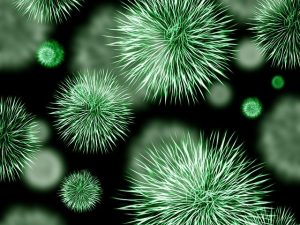 The Germ Theory
The Germ Theory
Once upon a time, around 1870, a man named Louis Pasteur came up with something called “The Germ Theory.” His theory states that germs are the cause of illness and disease, therefore you need to kill the germs to prevent and treat disease. In order to be well, we need to avoid these germs and kill them. That’s why we now have so many drugs, surgeries, radiation, synthetic drugs, surgeries that remove organs, toxic injections, etc. But, is this theory accurate? No, because germs can sometimes cause disease but not always. Pasteur’s theory was partly stolen from another scientist, among other scientific things he stole from others. He knew his theory had holes in it but was more concerned about his social status and profits. He had connections with the right people and took advantage of that.
FYI: Pasteur also invented the rabies shots and did a lot of questionable experimentation on animals, but I’m not going to go into all of that history.
Cellular Terrain Theory
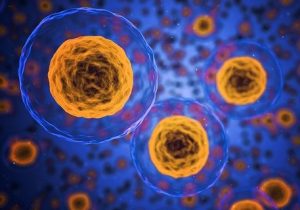 Around the same time, Antoine Bechamp proposed his scientific theory, the Cellular Terrain Theory. This theory explains germs and microorganisms are both inside and outside our bodies and can build and destroy cells. Germs are the consequence of a diseased condition that comes from within our body, not the cause of it (Chin, 2020). This means our lifestyle (nutrition, sleep, stress, toxicity levels, pH levels, environmental toxins) are the things that determine whether or not we develop a disease or fully recover.
Around the same time, Antoine Bechamp proposed his scientific theory, the Cellular Terrain Theory. This theory explains germs and microorganisms are both inside and outside our bodies and can build and destroy cells. Germs are the consequence of a diseased condition that comes from within our body, not the cause of it (Chin, 2020). This means our lifestyle (nutrition, sleep, stress, toxicity levels, pH levels, environmental toxins) are the things that determine whether or not we develop a disease or fully recover.
His fermentation experiments further showed his theories were correct. Read more on his fermentation studies here. If you like scientific reading, check out Bechamp’s book “The Blood and Its Third Element.” It has in-depth research on the Cellular Terrain Theory.
Pasteur – Germs cause disease
Bechamp – Disease is from a weakened immune system
How the “Germ Theory” Became Accepted
Bechamp didn’t care about social status and profits he cared about science. Due to his scientific data not being profitable, he was called a quack. His research was buried, and the Germ Theory became the defining principle for modern medicine. His name just vanished along with his theory. Yet, many aspects of his theory have been present in natural/alternative medicine for centuries.
Supposedly, at the end of Pasteur’s life, his last words were something like, “the germ is nothing, the terrain is everything!” After his death, his Germ Theory legacy catapulted into a money-making Germ Industry encompassing agriculture, biotechnology, food processing, manufacturing, and pharmaceutical industries while keeping science laboratories well funded and researchers busy working (Chin, 2020). Pasteur is still today seeing as a hero despite the many holes in his theory, or the fact he provided false results in many of his experiments to match his theories.
Your Health Choices Determine the Health of Your Immune System and Whether or Not You Become Sick with a Cold, Catch a Virus, Develop a Disease, etc.
 Your body is your home! Let’s say your home is pretty dirty, you’re not cleaning it, you got mold growing (disease-causing germs). The mold is the only thing you are worried about. So you clean up the mold with some toxins (i.e. drugs), it does the job of the mold not affecting you, but your house stays dirty. In fact, you added to the problem with more toxins. This makes you more susceptible to disease. That’s what most people do. An alternative would be to take care of your body and immune system with healthy choices vs. adding toxins to the body.
Your body is your home! Let’s say your home is pretty dirty, you’re not cleaning it, you got mold growing (disease-causing germs). The mold is the only thing you are worried about. So you clean up the mold with some toxins (i.e. drugs), it does the job of the mold not affecting you, but your house stays dirty. In fact, you added to the problem with more toxins. This makes you more susceptible to disease. That’s what most people do. An alternative would be to take care of your body and immune system with healthy choices vs. adding toxins to the body.
The main tasks of the body’s immune system are to fight disease-causing germs (pathogens) like bacteria, viruses, parasites, or fungi, and to remove them from the body, to recognize and neutralize harmful substances from the environment, and to fight disease-causing changes in the body, such as cancer cells (NCBI, 2020). For more information on how the immune system works view NCBI.
Can the Immune System Fight Off Anything?
If we take care of our bodies germs are not a threat to us. Most viruses and bad bacteria our bodies can defend against. It’s important to keep in mind there are only a few STRICT pathogens out there, one where, if you get exposure to these microbes, you WILL GET SYMPTOMS, no matter who you are (Dr. Geis, 2020). These include malaria, HIV, and syphilis (Dr. Geis, 2020).
Hygiene Hypothesis – Why We NEED Exposure to Germs
We tend to think of germs as just bad. But an alternate idea suggests just the opposite: Germs are a necessary part of a healthy immune system, helping our body’s defenses beef up and fight future illnesses (Gann, 2012). This is the hygiene hypothesis. It hasn’t been around as long, it was introduced in the 1980s by David Strachan, a professor of epidemiology.
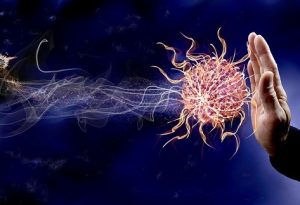
Exposure to lots of germs helps us to build a stronger immune system.
An experiment was done with mice that support this theory. One group of mice was exposed to a normal bacteria environment, and the other group a germ-free. Looking at both group’s immune systems scientists found the group with exposure to normal bacteria had stronger immune systems than the mice who had a germ-free environment. Not to mention, the germ-free mice had inflammation in their lungs and colon which in humans is seen with people who have asthma or ulcerative colitis. When the germ-free mice did get exposure to bacteria their immune systems greatly improved. Therefore, microbes are important, especially in the early stages of life.
Once the body has come into contact with a disease-causing germ for the first time, it usually stores information about the germ and how to fight it (NCBI, 2020). It can then fight off those germs faster next time it is exposed and may fight off bacteria or viruses that have evolved.
Bacteria Isn’t Bad
Bacteria is on every surface, everything we touch, on our skin, in us. We can’t kill the bad germs without killing the good germs, as well. All the bacteria living inside you would fill a half-gallon jug; there are 10 times more bacterial cells in your body than human cells, according to Carolyn Bohach, a microbiologist at the University of Idaho (U.I.), along with other estimates from scientific studies (Wenner, 2007).
This theory also makes sense when we look at how kids tend to have weaker immune systems. They haven’t been exposed to enough germs to build up their immune systems. In 1990, a health researcher, Dr. Erika von Mutius studied asthma and allergies in children in East Germany vs West Germany. The East Germany kids grew up in dirty and polluted conditions compared to West Germany. Which one had more cases of asthma? East Germany had less asthma and fewer allergic reactions.
This doesn’t mean though exposure to a lack of germs is the only cause of asthma. There are other factors that play a role. By the way, asthma cases have more than doubled in the U.S. in children from 1980 to now.
Allergies are Not Permanent – Neither is Asthma
We tend to have the misguided idea though that allergies are permanent, or you can’t heal from asthma, which couldn’t be further from the truth. Here is a story of someone who has relieved their asthma: Changed Her Life, Cured Her Asthma. Another example of changes in allergies, in my short life, I have gone from being allergic to neither dogs nor cats, to allergic to cats, allergic to dogs, to no longer allergic to cats, and then finally no longer allergic to dogs. I also used to get very severe allergy attacks and my husband had recurring sinus attacks, and that has changed.
My Allergy Story
 When I was a kid I wasn’t allergic to cats or dogs. I lived with a cat and a dog. Fast forward maybe 5 years later, I no longer had a cat. I was exposed to one and found out I was extremely allergic. My parents got dogs when I was off at college. I came back from college and found out I had an allergy to dogs for the first time. Then, I wanted to adopt a pet when I got my own home and thought I could probably still get a dog because my cat allergy was worse. But, I didn’t want a dog. I always wanted a cat.
When I was a kid I wasn’t allergic to cats or dogs. I lived with a cat and a dog. Fast forward maybe 5 years later, I no longer had a cat. I was exposed to one and found out I was extremely allergic. My parents got dogs when I was off at college. I came back from college and found out I had an allergy to dogs for the first time. Then, I wanted to adopt a pet when I got my own home and thought I could probably still get a dog because my cat allergy was worse. But, I didn’t want a dog. I always wanted a cat.
So I told myself I wasn’t going to be allergic to the cat, I can develop immunity. My husband and I got a kitten because they are hypoallergenic, its when they become full-grown cats we become allergic typically. We also chose siamese because they are more hypoallergenic. I took no cautions, rubbed my face in my cat’s hair and everything.
I did develop an immunity. Eventually, I realized I was no longer allergic to anyone else’s cats anymore either. Then, somehow my allergies to dogs just vanished, as well. My diet improved over the years, which I think helped my allergies. But, my allergies would still spike in Winter and were worse when I would play with my cats (I have two now). For nearly the last seven years I have had allergy attacks in February so bad I would cough up phlegm for nearly a month after.
This has also helped with my allergies. Vicks Filter-Free Ultrasonic Cool Mist Humidifier It sits on my nightstand and I run it every night during the months I’m prone to have allergy symptoms. Buy here.
How I Gained Control Over My Allergies
 My husband got the best air filters for our home (high MERV rating & vacuum with a HEPA filter), had our vents cleaned, and my allergies still spiked in Winter. Then, just this year for the first time I didn’t have an attack. Why? My immune system improved? Better air quality? Probably both. My diet hasn’t changed much, so I actually have to contribute it to regularly taking quercetin supplements before any sign of allergy symptoms, and the UV light my husband installed in our furnace.
My husband got the best air filters for our home (high MERV rating & vacuum with a HEPA filter), had our vents cleaned, and my allergies still spiked in Winter. Then, just this year for the first time I didn’t have an attack. Why? My immune system improved? Better air quality? Probably both. My diet hasn’t changed much, so I actually have to contribute it to regularly taking quercetin supplements before any sign of allergy symptoms, and the UV light my husband installed in our furnace.
I built up immunity through exposure to the animals, reduced the amount of mold and bacteria in the air, and improved my immune health through diet. Diet can actually play a huge role in the presence of allergies. View this video on reasons for seasonal allergies and how to treat them naturally or/and this podcast. Sometimes there is a partial psychological component, as well. Here is an article that talks about how allergies can be better or worse based on emotional factors: Are My Allergies All in My Head?
IMPORTANT ALLERGY TIP: I will talk about this in my blog: Indoor Air Toxins & Chemical Cleaners I talk about problems with air fresheners and other chemical cleaning products! Air fresheners contain volatile organic compounds. VOCs commonly found in air fresheners include formaldehyde, petroleum distillates, limonene, esters, and alcohols (ACAAI, 2011). They increase the chances of asthma and are super bad for your health!
Allergies occur because the immune system is overreacting. The immune system overreacts by producing antibodies that attack the allergen leading to a runny nose, itchy eyes, coughing, etc.
In Conclusion,
So the takeaways from this are instead of relying on the medical system to fix our health issues, we can actually create healthy bodies, healthy immune systems. We don’t have to fear germs, in fact, we need to be exposed to a certain number of germs. People are tricked into taking all these drugs and doing surgeries that often don’t fix the actual problems. Did you know some people have their gallbladder removed because it isn’t functioning right, and then they still have symptoms of gallbladder problems?
So how can we apply this to our lives? What are the factors that go into creating a healthy immune system? I dive more into this in my next flaws in healthcare blog How to Strengthen Your Immune System & Defend it When it’s Weak.
Another takeaway, you honestly can’t assume just because there are scientific studies to back something, doesn’t mean they haven’t been manipulated. You have to follow the money trail. We also know history can certainly be manipulated, as well.
Have you found this beneficial? What did you learn? I would love your feedback. Please leave a comment.
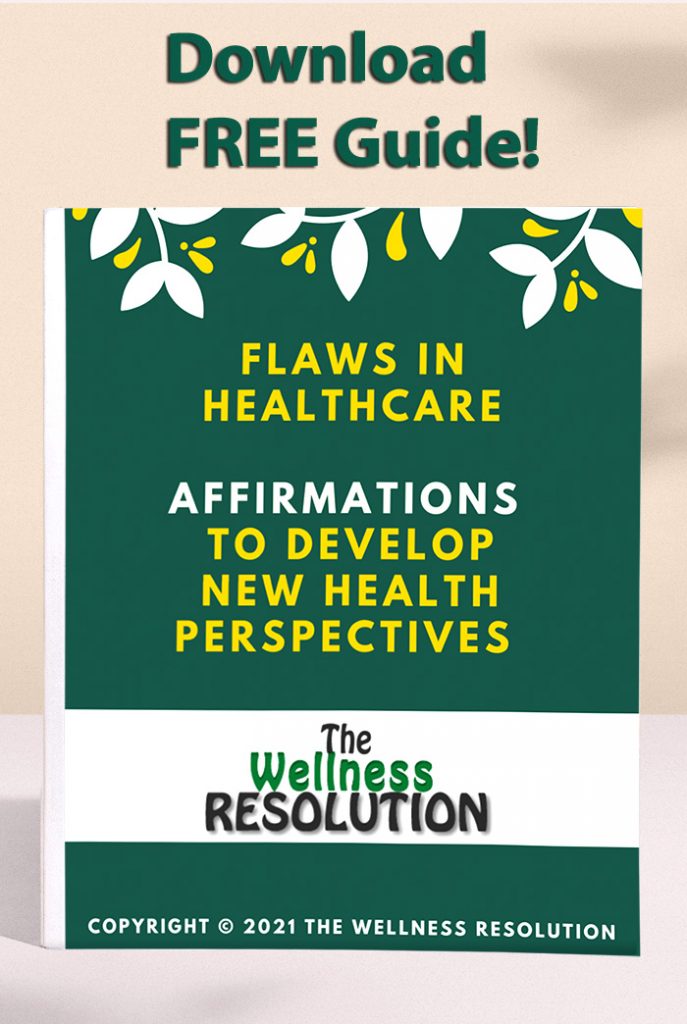
Receive My Free Flaws in Healthcare Guide:
Affirmations and Tips to Developing Healthier Perspectives
View ALL my Flaws in Healthcare Blogs:
- Flaws in Healthcare Making & Keeping People Sick
- Perfect Weight Doesn’t = Healthy – Cellular Health Matters More
- ILLNESS is RARELY JUST PHYSICAL Problems
- How to Strengthen Your Immune System & Defend it When it’s Weak
- Cure vs Treatment & The MULTIPLE Problems with “CURES”
- Shocking History of Modern Medicine
- Expecting A Quick Fix & Relying TOO Much on Modern Medicine
- Why We Shouldn’t Wait to Fix Health Problems!
- How We Focus More on Short-Term Health vs Long-Term Health
- Health is Deteriorating in the U.S. (Health Conditions Becoming Common)
Resources
Chin, Serena. (2020, October 16). Medium/Louis Pasteur vs Antoine Béchamp: The Germ vs Cell Terrain Theory. Retrieved from: https://serenaearthlink.medium.com/louis-pasteur-vs-antoine-b%C3%A9champ-the-germ-vs-cell-terrain-theory-4dec2c16559
Dr. Geis, (2020, April 1). praireskyintegrativehealth/GERM THEORY VS TERRAIN? PASTEUR AND BECHAMP DUKE IT OUT!. Retrieved from: https://prairieskyhealth.ca/germ-theory-vs-terrain-pasteur-and-bechamp-duke-it-out/
Wenner, Melinda. (2007, November 30). SCIENTIFIC AMERICAN/Humans Carry More Bacterial Cells than Human Ones Retrieved from https://www.scientificamerican.com/article/strange-but-true-humans-carry-more-bacterial-cells-than-human ones/#:~:text=All%20the%20bacteria%20living%20inside,other%20estimates%20from%20scientific%20studies
(ACAAI) American College of Allergy, Asthma & Immunology/Unplug indoor pollutants for a breath of fresh air. (2011, November 6). Retrieved from: https://acaai.org/news/unplug-indoor-pollutants-breath-fresh air#:~:text=About%2020%20percent%20of%20the,may%20smell%20fresh%2C%20but%20Dr.
NCBI/How Does the Immune System Work. (2020, April 23). Retrieved from: https://www.ncbi.nlm.nih.gov/books/NBK279364/
Bradford, Alina. (2016, March 17). LIVESCIENCE/What Is the Hygiene Hypothesis?. Retrieved from: https://www.livescience.com/54078-hygiene-hypothesis.html
Gann, Carrie. (2012, March 22). abcNews/Bacteria Help Body Beef Up Immunity, Study Says. Retrieved from: https://abcnews.go.com/Health/bodys-defenses-made-mightier-microbes-study/story?id=15982444
(NOTE: I do not agree with everything in the ABC News article i.e. the last couple of paragraphs, but I couldn’t find another suitable article with the same information.)
Featured on Top 100 Lifestyle Blogs, Websites & Influencers in 2021
I have a Wellness Coach Certificate, I'm an entrepreneur, an innovator, writer, and artist. My expertise includes over 7 years of marketing, research, and developing content for holistic health businesses. Plus, my own personal journey of becoming chronically sick: understanding what went wrong, and finding a way to heal and live a healthier life. I have a passion for wellness with a wealth of knowledge surrounding: wellness, flaws in healthcare, root causes for chronic illnesses, and alternative treatments.

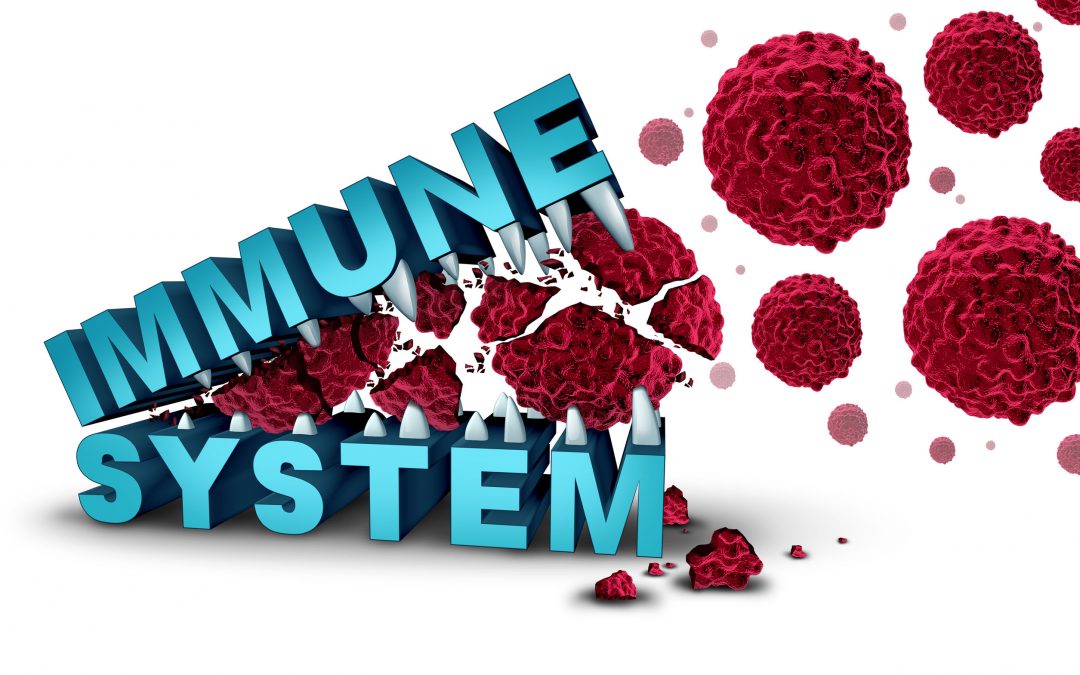

Trackbacks/Pingbacks